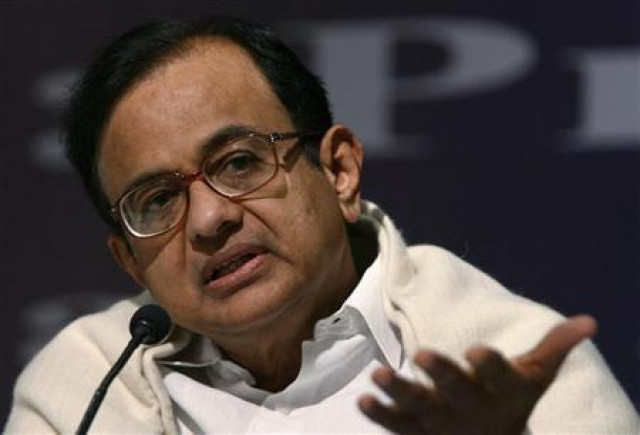Talks only way to avoid war, says Indian opposition leader
Chidambaram says they have to live with Pakistan forever and ever

P. Chidambaram. PHOTO: REUTERS
P Chidambaram, the Congress party leader, and former finance minister, said that dealing with the neighbouring nation was “very complicated”, however, there was no other alternative available to avoid war, Hindustan Times reported.
However, he said that “plebiscite was offered under very different conditions”, adding that since then the conditions had changed dramatically.
In response to a question, he said that dealing with Pakistan was more complex, which involved a mixture of areas like foreign, defence and security policies.
“So it is very complicated dealing with Pakistan… but as [former prime minister] Vajpayee Ji once said and Dr Manmohan Singh repeated, Pakistan is our neighbour, we can change our friends, we cannot change our neighbours.”
Chidambaram, who has also served India as union minister, said: “We have to live with Pakistan forever and ever.”
While recalling the wars fought between the two nuclear-armed neighbours, he said, “Ultimately, we have to talk to Pakistan… you may get nothing out it, you may call me a pacifist, I am of firm view that war does not solve any problems.”
How the Indo-Pak tensions escalated
Tensions escalated dramatically between Pakistan and India on February 14 when a young man – a native of Indian occupied Kashmir (IoK) – rammed an explosives-laden car into an Indian military convoy, killing at least 44 soldiers.
India was quick to blame the state of Pakistan for the suicide bombing.PM Imran offered every possible help in the investigation, but India turned down the offer and whipped up war hysteria.
On February 26, the Indian Air Force violated Pakistani airspace. The country’s top civil and military leadership declared the violation of airspace by Indian fighter jets “uncalled for aggression” and decided that the country would respond at a “time and place of its choosing”.
On February 27, Pakistan announced it had shot down two Indian fighter jets that attempted to violate its airspace and captured an Indian pilot. The military’s media wing later released a video of the pilot, who introduced himself as Wing Commander Abhinandan bearing service number 27981.
Director-General Inter-Services Public Relations (ISPR) Major General Asif Ghafoor said in a press conference that the armed forces had responsibly retaliated to Indian incursion by strucking a target few miles from an Indian military’s administrative unit to ensure there were no human life or collateral damage.“We decided to not hit a military target or endanger human life. We did not want to retaliate at the cost of regional peace. We do not want escalation,” he told reporters.
India asks Pakistan to ‘do more’
A few hours later, Prime Minister Imran Khan took the nation into confidence over the armed forces’ response. As escalating tensions fuelled concerns of all-out war between nuclear-tipped Pakistan, Imran warned of catastrophic consequences should “better sense” not prevail.The premier ended his speech with another peace talks offer and cooperation in Pulwama attack investigation to India.
On February 28, the Foreign Office said it received a dossier on the Pulwama attack from the Indian government. It added that the government was deliberating whether to treat Abhinandan as a prisoner of war (POW) or apply any international convention.
In the evening, PM Imran addressed a joint session of the parliament and announced that Pakistan would release the captured pilot as a goodwill gesture to de-escalate tensions.
On March 1, Pakistan ‘as a goodwill gesture’ handed over to Indian authorities the captured IAF Wing Commander Abhinandan Varthaman as the nuclear-armed neighbours scaled back a confrontation that has prompted world powers to urge restraint.
It may be mentioned here that the United States, Saudi Arabia, United Arab Emirates (UAE), UK and European Union (EU) were involved in both overt and covert diplomacy to find a way out of the impasse between the two countries.












1724319076-0/Untitled-design-(5)1724319076-0-208x130.webp)






COMMENTS
Comments are moderated and generally will be posted if they are on-topic and not abusive.
For more information, please see our Comments FAQ